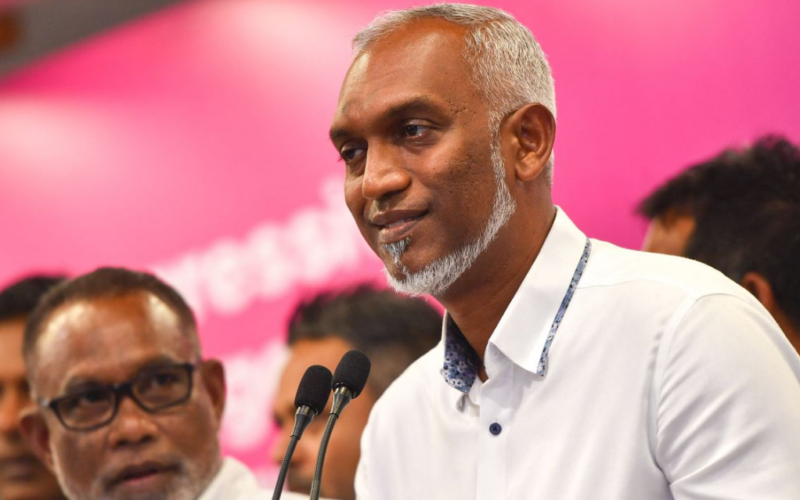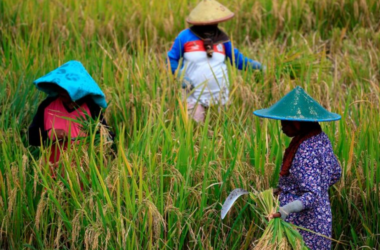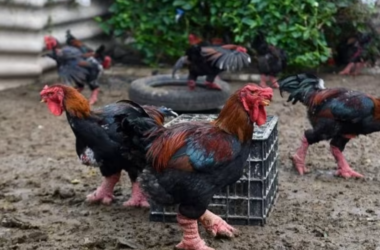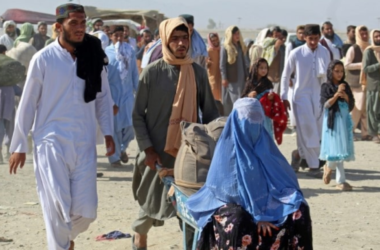Maldivian President Mohamed Muizzu is actively seeking increased cooperation with China, as showcased during his visit to a southern Chinese port city for the “Invest Maldives” forum. The diplomatic move comes as the Maldives shifts away from its traditionally strong ties with India, with President Muizzu emphasizing the importance of China as a “closest ally and developmental partner.” This article examines the key aspects of President Muizzu’s visit, the potential agreements, and the implications for the Maldives’ relationships with both China and India.
Since taking office in November on an “India Out” campaign platform, President Muizzu has expressed concerns about New Delhi’s influence, labeling it a threat to Maldivian sovereignty. The government’s decision to ask dozens of locally based Indian military personnel to leave underscores this shift. President Muizzu’s visit to China this week, even before considering a visit to India, signals a deliberate realignment of diplomatic priorities.
During the “Invest Maldives” forum, President Muizzu highlighted the significance of deepening ties with China, expressing a desire to increase the export of fish products under the countries’ free trade agreement. Fishing, a vital industry in the Maldives, provides the majority of employment, and aquatic products account for a significant portion of exports. President Muizzu also indicated interest in exploring partnerships under President Xi’s Belt and Road Initiative, with a focus on infrastructure projects such as the expansion of the central airport and commercial port.
China has been actively involved in the Maldives through the Belt and Road Initiative, contributing to projects like the Velana International Airport expansion and the China-Maldives Friendship Bridge. Chinese firms have invested $1.37 billion in the Maldives since its Belt and Road Initiative participation in 2014. The tourism sector, adversely affected by the pandemic, witnessed a decline in Chinese tourists, but they remain a significant demographic, representing the largest group of foreign visitors in 2019.
President Muizzu’s visit to China comes amid strained relations with India, exemplified by his criticisms of New Delhi’s influence and a shift in geopolitical alignment. Indian Prime Minister Narendra Modi’s recent visit to the Lakshadweep archipelago, considered by some as an attempt to draw tourists away from the Maldives, sparked tensions. The Maldivian response on social media and the suspension of flight bookings by an Indian travel platform underscore the diplomatic challenges.
While the Maldives seeks closer ties with China, economic concerns linger. The World Bank warns that deepening relations with China could pose challenges, given that the $1.37 billion owed to China constitutes around 20 percent of the Maldives’ public debt. China is the Maldives’ largest bilateral creditor, raising concerns about the debt trap phenomenon. The World Bank report highlights a “build-up of sovereign exposure” during the pandemic, with increased interest payments exceeding previous averages.
President Muizzu’s visit to China reflects a strategic pivot in the Maldives’ foreign policy, aiming to strengthen ties with China while navigating strained relations with India. The potential agreements and investments underscore the significance of China as a developmental partner. However, economic caution is warranted, given concerns about debt dynamics and the Maldives’ heavy reliance on Chinese funding. The evolving geopolitical landscape in the Indian Ocean region will likely continue to shape the Maldives’ diplomatic choices in the coming years.








